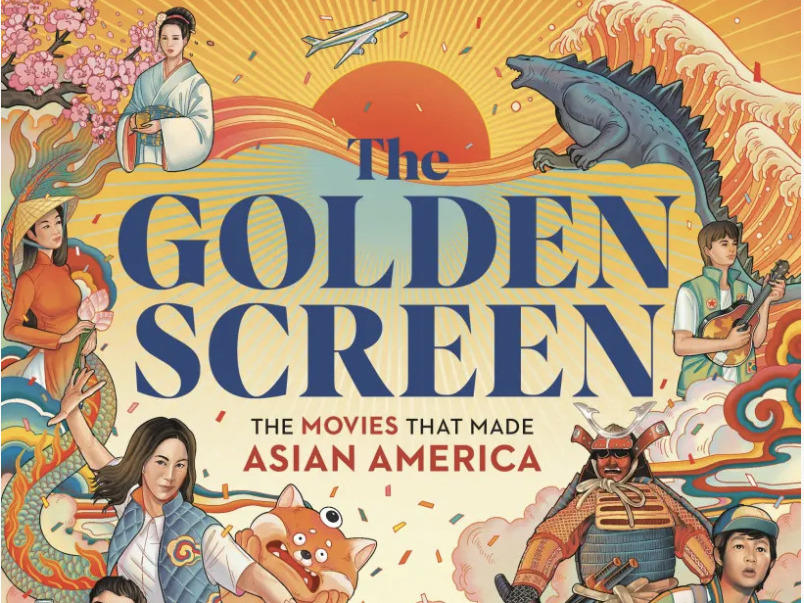Section Branding
Header Content
Jeff Yang's new book is a 'cheer out loud' for the films that made Asian America
Primary Content
There has been notable progress in Asian American representation in film over the past few years. One author explores how the journey to this point wasn't always easy.
- Who is he? Jeff Yang is a writer and author, who has explored Asian American communities and cultures for several decades.
What's the big deal? Yang's newest book is The Golden Screen: The Movies That Made Asian America — a collection of cultural commentary on the state of Asian American representation in our media.
- The book selects more than 130 films over the last century, and invites contributors like author Preeti Chhibber to reflect on how some of their favorite films shaped their own identities as Asian Americans.
- It includes a foreword from Michelle Yeoh and an afterword by Jon M. Chu.
What are people saying? Yang and Chhibber sat down with All Things Considered host Ailsa Chang to talk about the need for this book, the stories recounted and the state of Asian American film today.
On why the book felt necessary:
Yang: Well, this is a moment in which we're finally, for the first time, starting to see this plethora of diverse, inclusive and authentic representations of our Asian experiences on screen.
Even when you were kind of playing a little snippet of Everything Everywhere All At Once winning the Oscar [in the interview], I almost cheered out loud.
And the book is sort of like a cheer out loud.
On why including foreign films was necessary to convey the Asian American experience:
Yang: For me, watching kung fu movies in double feature theaters in Chinatown was the first time I saw Asian heroes who were saving the day, who were getting the girl.
I loved action movies in America. I aspired to be the white actors who were on screen. But when I actually, for the first time, got to see people who shared some aspects of my life and my world, that was the first time I felt like something new was possible.
Chhibber: "Bollywood's the biggest film industry in the world" is what we always say, right?
But I feel like Bollywood cinema was seen as sort of gimmicky or not necessarily a valid artform for a long, long time. And it's something I grew up with.
I think the influence of Bollywood is much more recent in Hollywood than when I was little for a multitude of reasons. But it was such a huge part of our community that all I wanted to do was just, like, share it with everybody I knew.
On their hopes for the next breakthrough in Asian American cinema:
Yang: To not have to have a sharp intake of breath every single time a new Asian or Asian American film comes to the screen.
We don't want to worry about whether it's going to be successful or represent us well. And I think we're kind of getting there. We finally arrived at the era where Asian Americans can be mediocre.
We can put stories out there that don't have to match up with the model minority or even the standards of success that are often imposed on minorities in general.
Want more on books? Listen to Consider This on how book bans in the U.S. are taking an emotional and financial toll on librarians
So, what now?
- Chhibber says that having a variety of Asian American voices creating art leaves more room for opportunity and experimentation.
- "Being able to recognize that creators from our community can make film or create art that doesn't have to be associated with identity is something that I think could be very exciting."
- The Golden Screen: The Movies That Made Asian America is available now.
Learn more:
- 3 new poetry collections taking the pulse of the times
- 'The Reformatory' tells a story of ghosts, abuse, racism — and sibling love
- In 'White Holes,' Carlo Rovelli takes readers beyond the black hole horizon
Copyright 2023 NPR. To see more, visit https://www.npr.org.

